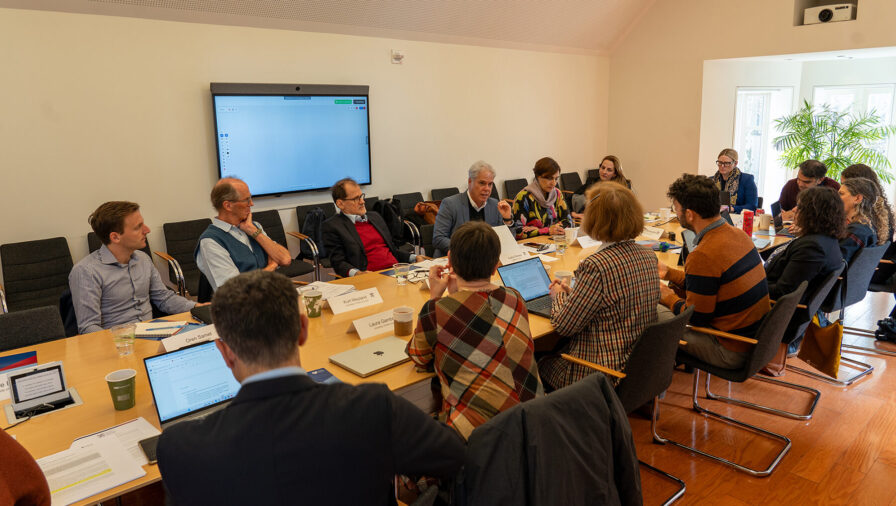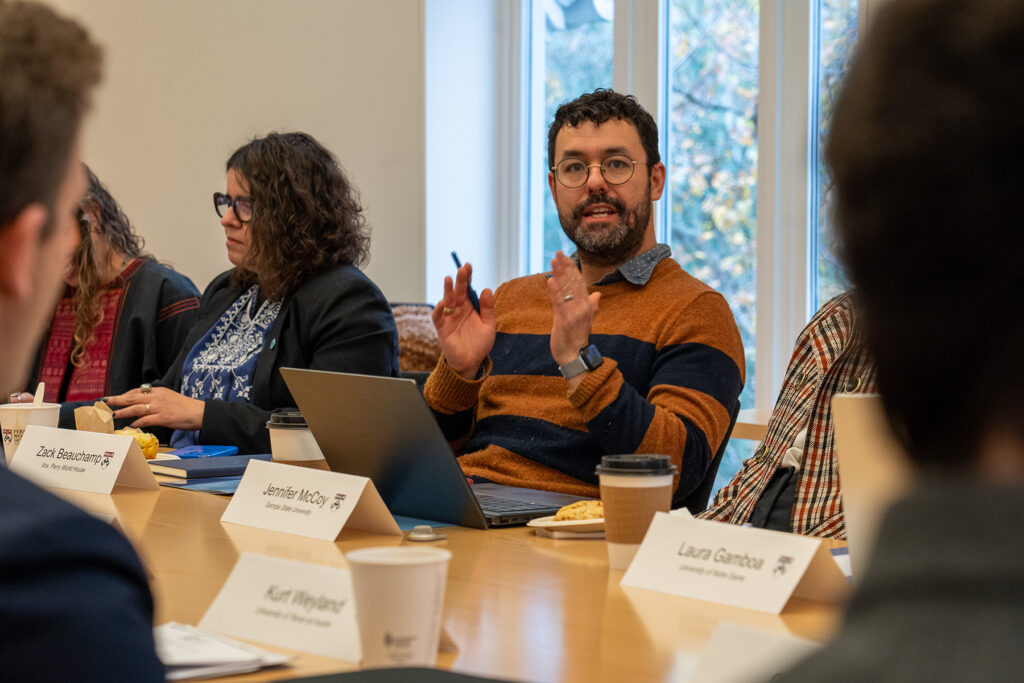Perry World House Hosts “Building a Democratic Playbook” Workshop

On November 20, 2025, Perry World House convened a workshop that brought together leading democracy scholars and researchers to identify the key elements of a “global democracy playbook.” How do resilient democracies around the world push back against authoritarian and non-democratic populist movements? What institutional, social, and normative practices have been able to slow or even block democratic backsliding? What tactics and strategies on the part of opposition parties and civil society have been most effective?
Democratic backsliding in the 21st century is characterized by gradual, ambiguous shifts that often confound early detection and stymie coordinated opposition. Backsliding usually occurs under conditions of high polarization and ambiguity that shade systemic threats. As a result, would-be authoritarians, often elected through democratic means, erode democracy before effective resistance forms. Countering backsliding requires a highly contextual, multi-pronged and sequenced approach.
Experts adopted a comparative lens, looking at cases of democratic resilience in a number of societies around the world. They noted it is essential to gauge how far a democracy has “backslid” in order to take appropriate action. Participants also called for understanding the socio-economic context as well as the nature of the authoritarian challenge. To address the challenge of executive overreach, they recommended pro-democracy advocates to work with courts and form coordinated opposition coalitions, while leveraging international assistance. In cases of “legislative capture”, experts called for societal mobilization, electoral coalitions, and state/local level engagement, with a focus on winning elections.
Experts also suggested broad initiatives to counter backsliding. They included:
- Do not make it easy for authoritarians. In most cases, it is essential to contest elections and force authoritarians to make their non-democratic actions overt.
- Support and incentivize “defectors” from the authoritarian cause.
- Change the narrative, replacing pernicious polarization with “constructive polarization” that occurs in healthy democratic function.
- Organize broad coalitions that mobilize their opposition around specific policies; linking with political parties too.
- Over the long-term, invest in civic education and media literacy that help citizens recognize backsliding and rally around the value of democracy.
As an example, experts analyzed the factors that led to former Brazilian president Jair Bolsonaro’s failure to undermine the country’s democracy. The Brazilian system – institutions, parties, and people – pushed back on illiberal policies and laws, culminating in the failed effort to attack federal government buildings on January 8, 2023. The factors that made Brazil resilient are both unique and widely applicable: multiparty democracy and strong courts that both defended their authorities (and in some cases expanded their power to balance Bolsonaro’s attempts to seize more), and multiple “veto” points to halt Bolsonaro’s attempts to curtail rights and freedoms and concentrate power.
The workshop concluded with a public event at Perry World House. Inaugural Penn Global Middle East Distinguished Visiting Scholar Dahlia Scheindlin and PWH Distinguished Visiting Fellows Zack Beauchamp and Carolina Jimenez Sandoval discussed the challenges and opportunities for those organizing to oppose democratic backsliding at home and overseas.

Perry World House Distinguished Visiting Fellow Zack Beauchamp leading a workshop discussion on democratic resilience.

During a public event, Penn Global Middle East Distinguished Visiting Scholar Dahlia Scheindlin and PWH Distinguished Visiting Fellows Zack Beauchamp and Carolina Jimenez Sandoval discussed how to build a “democratic playbook.”

